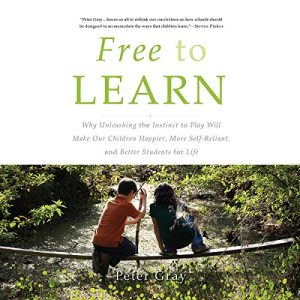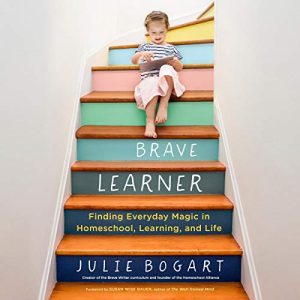Many home educators will be asked, “Is home education legal in the UK?” This is a common question, and many parents wonder about the legalities of home educating their children. Are you allowed to withdraw them from school? What are the requirements to ensure your child’s education is legal under UK law? This post will help you understand the legal framework surrounding home education in the UK.
Please check what the laws are where you live as different countries and even different states within the USA have their own policies and guidelines on Elective Home Education (EHE).
Quick Key Points about Home Education in the UK:
- Home Education is legal in the UK.
- Home Education is in fact the default legal requirement with school being an opt-in service.
- Parents are legally responsible for ensuring their child receives a suitable education, whether in school or at home.
- Deregistration is the process required if your child is already enrolled in school before starting home education. If you do not deregister they will be considered a truant. It is the schools responsibility to inform the local authority. Deregistration is effective immediately upon informing the educational institution where the child is registered.
- You do not need permission to Home Educate your child/children
- You do not have to follow the National Curriculum or any other Curriculum
- You do not have to be a qualified teacher to home educate your child/children
- Your child/children do not have to sit SATs or any national exams such as GCSEs, A-Levels, etc
- You will not receive any financial assistance from the government when you choose to Home Educate. Some local authorities may provide support and resources.
Is Elective Home Education Legal in the UK?
Yes, Elective Home Education is legal in the UK. You do not need to seek anyone’s permission to start home educating your child/children. Parents who choose to educate their children at home are required by law to ensure that their children receive a suitable education. Parents do not have to send them to school to receive an education, and they do not need permission from the government to keep them at home. This right is enshrined in Section 7 of the Education Act 1996; which states that “the parent of every child of compulsory school age shall cause him to receive efficient full-time education suitable (a) to his age, ability and aptitude, and (b) any special educational needs he may have, either by regular attendance at school or otherwise.”
This statement brings up the question of what constitutes a suitable education, but that is a subject of a different post.
The Legal Requirements
The legal requirements for Home Educating in the UK can vary slightly depending on the country within the UK (England, Scotland, Wales, or Northern Ireland). It’s essential for parents to be aware of and comply with the specific regulations in their area. Here’s a general overview of the legal requirements for Home Educating in the UK:
- parents are not required by law to inform the local authorities (local education authority or LEA) if they choose to Home Educate. However, it is considered good practice to do so.
- If the local authority becomes aware that a child is receiving education at home, they may request information about the educational provision.
- The local authority may provide advice or support but does not have the authority to approve or reject the decision to homeschool.
- Parents are not obligated to follow the National Curriculum.
It’s crucial for parents to research and understand the specific legal requirements in their location. Local authorities may have different approaches to Home Education, and some may provide more support and guidance than others. Some areas may have more active involvement from local authorities. while others may take a more hands-off approach, allowing parents greater autonomy in their Home Education approach.
The Proposed Children’s Wellbeing and Schools Bill
The Children’s Wellbeing and Schools Bill, introduced by the Labour government, is a proposed piece of legislation that aims to enhance child protection and standardise educational practices across the UK. One of the key provisions in this bill is the requirement for parents to seek local authority consent before withdrawing a child from school to home educate. While the intention behind this measure is to ensure children receive a suitable education and are safeguarded from potential neglect or abuse, it raises significant concerns for home educators.
The bill also proposes the creation of compulsory registers for children not in full-time education, giving local authorities the ability to monitor and support these children. However, this increased oversight risks undermining the autonomy and freedom that home educators currently enjoy.
What is often overlooked in discussions about child protection and home education is that the vast majority of children who are home educated and later found to be suffering abuse were already known to professionals before being removed from the school system. They are not the hidden cases the bill suggests. Many of these children are already part of a child protection plan or under the watch of social services, meaning the risk is already being monitored. By focusing on legislation that increases surveillance of home-educated children, the bill risks wasting resources on a solution that is unlikely to address the real issues.
Instead, the funding allocated to this bill could be better used to support local authorities and organisations that focus on preventing abuse and neglect from the outset. Investing in social services, mental health support, and early intervention programmes would be far more effective in ensuring the wellbeing of all children, regardless of their educational setting. I strongly disagree with this bill’s approach, as it places unnecessary pressure on parents to justify their educational choices and diverts attention from the more pressing issues in child welfare.
Home Education FAQs Series
This post is part of a series of Frequently Asked Questions about Home Education in the UK. Whether you’re new to Home Education, considering it in the future, or you know someone who is, reviewing the list of FAQs can be a great starting point.
You can find answers to common questions such as “What’s the difference between Home Educating and Homeschooling?” or “Why do some families choose to Home Educate?” and many more. If you’re interested in receiving updates about my Home Education FAQs Ebook, sign up below to be added to the list!
This post contains affiliate links, which means Barefoot Bliss and Books make a small commission at no extra cost to you. See the full disclosure here.
Related Posts
You might also be interested in
FURTHER READING ON HOME EDUCATION
If you’re curious about different philosophies or approaches to Home Education, here are some book recommendations and reviews that dive deeper into these topics:
A Book Review of “Home Grown” by Ben Hewitt: Unschooling, Vitamin N, and A Simple Life – This book provides a wonderful perspective on unschooling and living a simpler, nature-based life. If you’re exploring alternative approaches to Home Education, this is a must-read.
Book Review: The Brave Learner by Julie Bogart – Julie Bogart’s The Brave Learner offers a warm, practical guide to nurturing a joyful and flexible learning environment. She encourages parents to embrace the messiness of education and focus on fostering curiosity, creativity, and a love for learning, rather than rigidly adhering to a set curriculum.
In Free to Learn, Peter Gray explores the importance of play and intrinsic motivation in children’s learning. He argues that traditional schooling often stifles creativity and natural curiosity, proposing that children thrive when given more freedom to explore the world on their terms. This book is an essential read for those interested in child-led learning and exploring alternatives to the traditional education system.
Wild and Free by Ainsley Arment focuses on the beauty of homeschooling through a more flexible, nature-based approach. Ainsley encourages parents to embrace the wildness of childhood and cultivate an educational environment that honors each child’s uniqueness. The book offers inspiration for homeschooling families who wish to nurture their children’s natural love for learning while encouraging creativity, exploration, and hands-on experiences.





[…] home educating check the laws for your own country or state in the USA. I am writing about Home Education in the UK. At the time of writing Home Education is legal in the […]